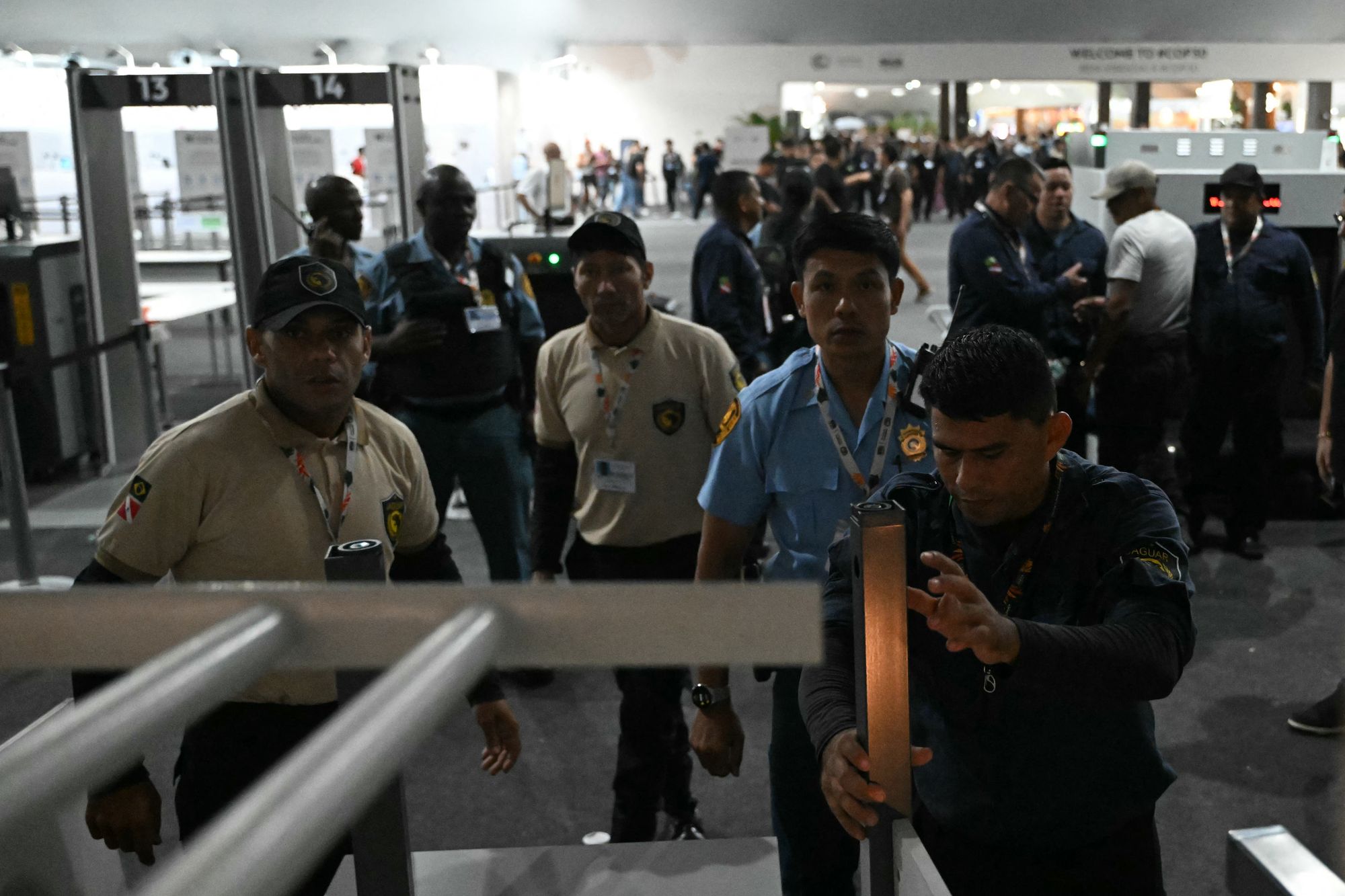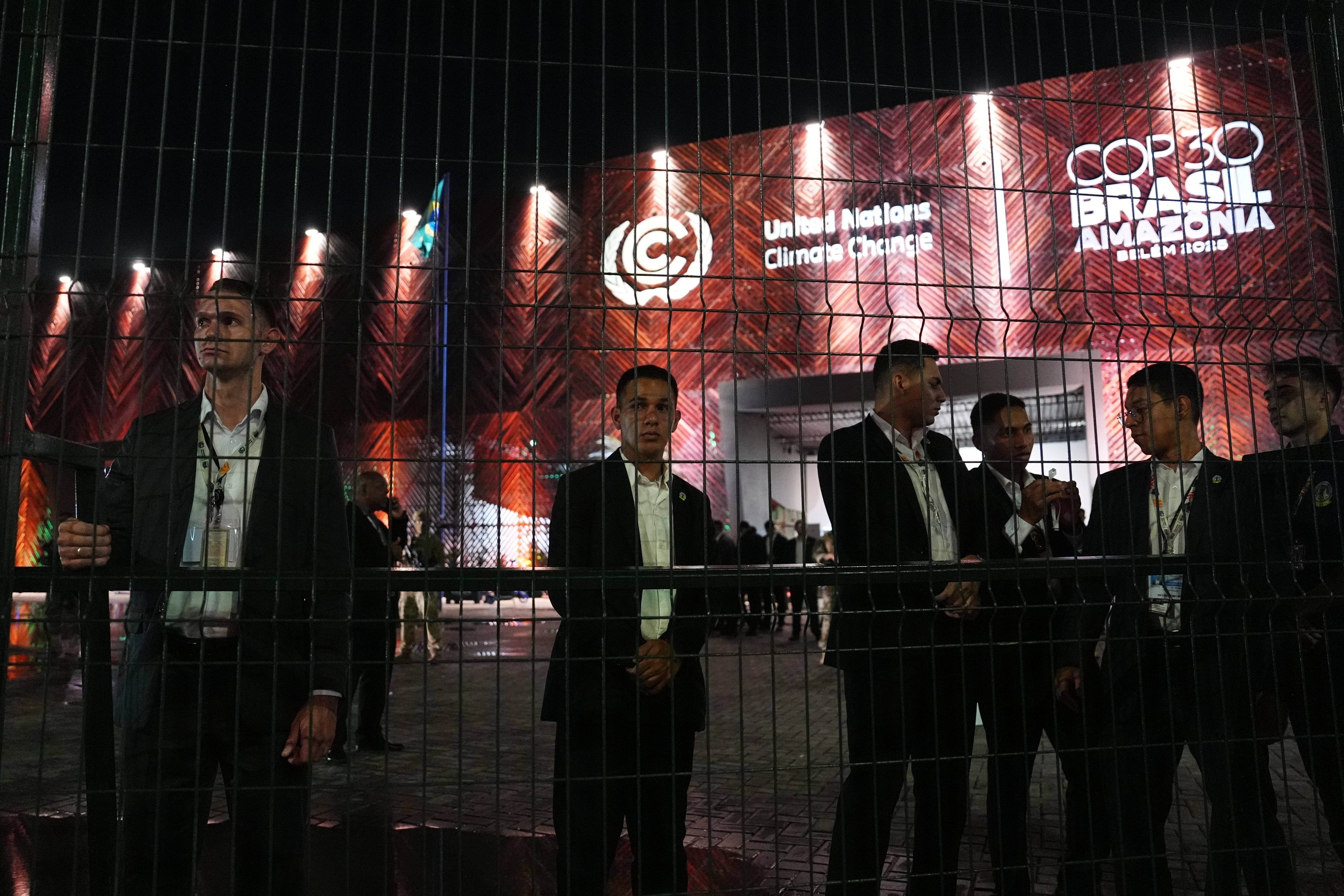
Indigenous protesters forced their way into the Cop30 climate summit in Brazil.
Dozens clashed with security guards at the venue’s entrance in the Amazon city of Belem and demanded access to the UN compound where thousands of delegates gathered to discuss climate change.
The group had gathered at the summit with flags emblazoned with slogans calling for land rights and signs proclaiming “our land is not for sale”.
“We can’t eat money,” said Gilmar, an Indigenous leader from the Tupinamba community near the lower reaches of the Tapajos River in Brazil, in an interview with Reuters. He said that the groups were frustrated about ongoing developments in the forest.
“We want our lands free from agribusiness, oil exploration, illegal miners and illegal loggers.”
Dozens of Indigenous leaders had arrived by boat to take their place in talks and demand a stake in how their forests are managed.
One witness told Reuters that they saw a security guard clutching his stomach while being rushed away on a wheelchair.
A guard with a cut above his eye told the agency that he had been hit on the head by a heavy drumstick that had been thrown from the crowd. Several batons were confiscated by security.
Hundreds marched to the venue to protest the effects of climate change, and the group dispersed shortly after the clash. Delegates had been asked to move inside the building and not leave and were later allowed to exit.
On Tuesday, Raoni Metuktire, also known as Chief Raoni, told Reuters that Indigenous communities were critical about ongoing industry and development projects in the forest.

Brazil’s president Luiz Inácio Lula da Silva had insisted that Indigenous communities play a key role in this year’s Cop30 negotiations.
The meeting held in Brazil from 10 to 21 November, brings together representatives from nearly 200 countries to discuss climate resilience and the effects climate change on vulnerable regions.

Leaders of the United States, China and India – the planet’s three biggest polluters – are not attending.
Prime minister Keir Starmer, who is attending the summit in person, admitted the “consensus is gone” on the climate crisis as governments across the world scaled back their commitments to cut emissions.
“But that makes our duty even greater,” Stamer told the conference: “Because inaction will only deepen the problems of rising bills, energy insecurity and global instability.”




